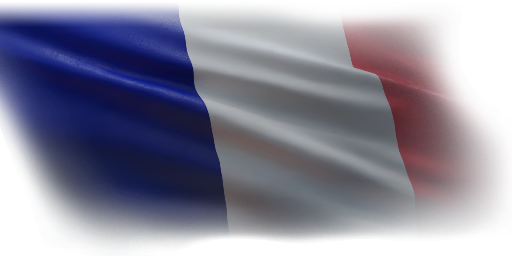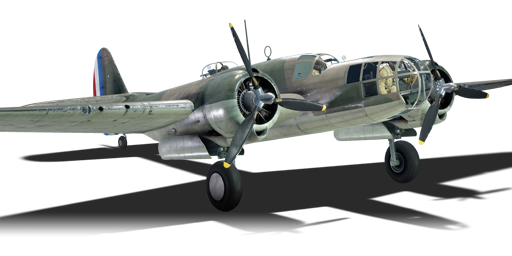

Aviation
Martin 167-A3
I
Rank
AB
2.0
RB
2.0
SB
2.3
Battle rating
France
Research country
Bomber
Main role
5,900

Research
6,300

Purchase
General information
Flight performance
Max speed
at 3,962 m
479442502459 km/h
Rate of Climb
96.312.46.3 m/s
Turn time
2122.620.121.9 s
Max altitude
9,600 m
Takeoff Run
350 m
Landing
flaps
flaps
Take-off
flaps
flaps
Combat
flaps
flaps
Air
brake
brake
General characteristics
Crew
3 persons
Engine
Length
14.2 m
Wingspan
18.7 m
Wing Loading
134 kg/m²
Weight:
Base weight
5.665.845.525.81 t
Fuel in main tanks
1.01 t (1h 27m)
Limits:
Max Speed Limit (IAS)
574 km/h
Mach Number Limit
0.72 M
G limit
≈ -4/9 G
Flap Speed Limit (IAS)
L / T / C
210 / 307 / 326 km/h
Gear Speed Limit (IAS)
278 km/h
Offensive armament
4 × 7.5 mm FN Browning machine gun
Ammunition
3,200 rounds
Fire rate
1,350 shots/min
One-second Burst Mass
0.22 kg
| Belt | Belt filling | Armor penetration (mm) at a distance: | |||||
|---|---|---|---|---|---|---|---|
| 10 m | 100 m | 500 m | 1000 m | 1500 m | 2000 m | ||
| T/Ball/Ball/Ball/I/AP | 13 | 12 | 7 | 3 | 2 | 0 | |
| T/AP/AP/I/I | 13 | 12 | 7 | 3 | 2 | 0 | |
| IT | 3 | 3 | 3 | 3 | 0 | 0 | |
| AP/AP/I | 13 | 12 | 7 | 3 | 2 | 0 | |
Defensive armament
Turret — 7.7 mm Vickers K machine gun
Ammunition
500 rounds
Fire rate
950 shots/min
One-second Burst Mass
0.15 kg
| Belt | Belt filling | Armor penetration (mm) at a distance: | |||||
|---|---|---|---|---|---|---|---|
| 10 m | 100 m | 500 m | 1000 m | 1500 m | 2000 m | ||
| T/AP/Ball/Ball/I | 13 | 12 | 7 | 3 | 2 | 0 | |
| IT/AP/AP/AP | 13 | 12 | 7 | 3 | 2 | 0 | |
| IT/AP-I/AP-I/AP-I | 13 | 12 | 7 | 3 | 2 | 0 | |
Suspended armament
Setup 1
8 × 50 kg D.T. No.2
Setup 2
16 × 50 kg D.T. No.2
Economy
Repair cost
Basic → Reference
AB
330 → 446 

RB
510 → 689 

SB
820 → 1,108 

Crew training
1,800 

Experts
6,300 

Aces
80 

Research Aces
135,000 

Reward multiplier
AB / RB / SB
30 / 60 / 110 % 

106 % 

Total cost of modifications
5,940 

4,480 

Talisman cost
410 

Research order:
Flight performance | |
|---|---|
Survivability |
|---|
Weaponry | |
|---|---|
Rating by players
You must play more than 3 battles for the last week and more than 10 battles in a vehicle to rate it.
Like:
5
Flight performance:
Not enough ratings
Survivability:
Not enough ratings
Aerial combat:
Not enough ratings
Ground attack:
Not enough ratings
Balance:
Not enough ratings
Tips & Tricks
This space is currently empty
Do you know any interesting vehicle features?
Loading...
No articles about this vehicle yet
Become the first author and get rewards!
Write a guide, tell about interesting historical facts, make a tutorial or simply an interesting post.
No more content